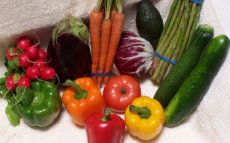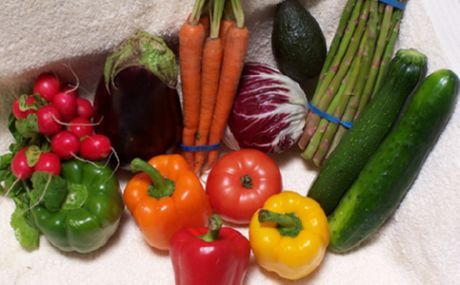How to prepare food for good digestion
Last reviewed: 23.04.2024

All iLive content is medically reviewed or fact checked to ensure as much factual accuracy as possible.
We have strict sourcing guidelines and only link to reputable media sites, academic research institutions and, whenever possible, medically peer reviewed studies. Note that the numbers in parentheses ([1], [2], etc.) are clickable links to these studies.
If you feel that any of our content is inaccurate, out-of-date, or otherwise questionable, please select it and press Ctrl + Enter.

What foods cause appetite?
Absolutely not those that simply lie in the supermarket trays in their raw form. That a person has an appetite for digesting food, you need to carefully prepare the products, make them attractive for absorption. That is, treat at high temperature - cook or fry. Delicious aroma, ruddy crust, spices and spices make products desirable for most consumers. If they are not raw.
Rough or careful processing of the products prepares them for digestion, causing increased salivation. But the trick is that the processing of the food, although it prepares them for digestion, but deprives many useful properties.
For example, with heat treatment, many vitamins can be destroyed up to 80% - in particular, vitamin C. That is why cooks who know how to process foods while preserving most of their useful properties are so highly valued among gourmets and simply lovers of a healthy lifestyle.
Spices for food digestion
Spices promote increased salivation, and improve the taste of food. Thanks to spices, the digestive tract activates, as well as the intestinal and stomach motility. But if a person abuses spices, digestive juices will be released excessively, and this leads to heartburn and destruction of the tissues of the intestine and stomach. This is especially harmful for those who suffer from diseases of the gastrointestinal tract.
Food as a source of fuel for the body
What is the first step in digesting food? Believe it or not, the process of digestion begins before we put food in our mouths. It starts when the product smells of something insurmountable, or when you look at your favorite food and you know that it will please you with good taste. Just sniffing at home apple pie and thinking about how delicious it is, you are already starting to produce saliva, and the process of digestion is started.
If it's been a long time since your last dinner, or even if you're thinking about something tasty, then you're hungry. Eat until you are satisfied, and then go about your business. But in the next 20 hours or so, your digestive system does its job, and the food you eat passes through your body.
Food for the body is the source of fuel. Nutrients in foodstuffs give the body cells energy and it should work. But before the food can give this energy, it must be processed into small pieces that the body can perceive and use.
During the absorption of nutrients that come from food (including carbohydrates, proteins, fats, vitamins and minerals), they pass through the digestive tract, are absorbed into the intestinal wall and enter the bloodstream. Blood works by distributing these nutrients so that the rest of the body gets them too. Waste parts of food that the body can not use, processed into cal.
Food Processing Standards
To prepare food for digestion, you need to properly process it. Following the correct procedures for processing food, it is important to minimize the risk of contamination. The most important preventive measures for the processing of food concern personal hygiene, they include the following
Keep the body clean and wear clean clothes
- Always wash your hands thoroughly under a stream of warm water and soap and thoroughly dry. Do this before handling food, after going to the toilet, after handling raw foods or waste, before starting work, after each break and after blowing
- Take into account before starting work during the day, whether you have any injuries or infections on the skin, diseases of the nose, throat, stomach or intestines
- Cover cuts and wounds covered with a waterproof plaster
- Avoid unnecessary handling of food
- Do not smoke, eat or drink near unopened food and never cough or sneeze near the cooking area.
- Keep clean the surface of the cooker and the table where you cook food, as well as kitchen equipment.



 [
[